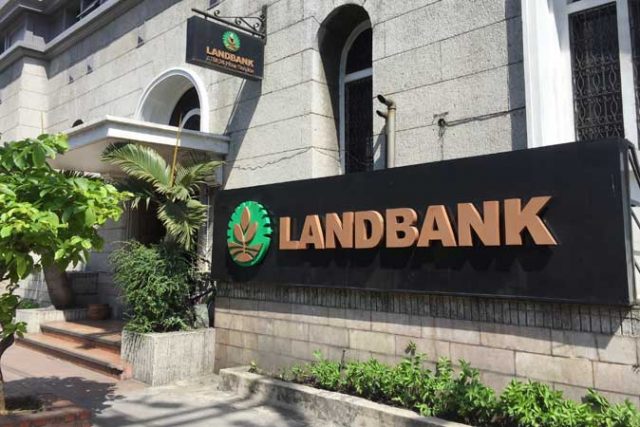By Jeanne Rebollido Jacob-Ashkenazi
(Third Prize winner of the 2020 Doreen Gamboa Fernandez Food Writing Award)
I WONDER why eating goat generates such divergent reactions. Maligned as “poor man’s beef,” yet it has graced a royal table, that of Spain’s King Philip II, after whom, we all know, our country was named. For the third course of his Christmas feast, Cabrito Asado y Mechado was presented, noted in the cookbook of the royal chef Antonio Martinez Montiño, published in 1611. Kid — cabrito or chivo — has been highly esteemed Christmas fare since, whether as the Extremaduran classic Caldereta de Cabrito with roasted and mashed liver sauce, ancestor of our own Caldereta, or the Guisado de Cabrito en Sidra in Asturia, heady with the fumes of apple cider, or the Malagan Chivo al Ajillo, with its glorious surfeit of garlic.
Perhaps it’s the smell exuded by mature goats that turns some people off. However, true lovers of goat meat, like those who prefer mutton to lamb, enjoy the savor and scent of mature chevon (yes, its name has been gentrified). Older, less tender goat meat lends itself to long, slow, moist cooking, and its intrinsic aroma is sufficiently robust to stand up to fennel and mace and diverse bold spices in Rendang Kambing, a celebratory dish for Hari Raya in Indonesia and Malaysia. Goat, historically dubbed “mutton” in India and Pakistan to cosset colonial British sensibilities, performs equally well in Korma, marinated in yogurt overnight for tenderness, then gently braised with cardamom, cumin, coriander, and more. Goans pride themselves on their goat Xacuti (“xa” pronounced “sha”), meltingly rich with coconut cream and redolent with white poppy seeds, pepper, chilies, nutmeg, cloves, and star anise. For the purist caprine gastronome, in the land where raw attests to unquestionable freshness and impeccable quality, mountain goat (yagi) sashimi in Japan’s southernmost prefecture, Okinawa, offers a different gustatory experience altogether.
From the Near East (the goat’s center of domestication over 8,000 years ago) to Central Asia, Eastern Europe to Central and South America, including the Caribbean, the goat is far from lowly fare. It has always been at center stage for feasts and celebrations. In our country, there appears to be a gender divide (and dare I say, perhaps a class one too) about eating goat, with men keenly salivating at the prospect, particularly when alcoholic drinks are involved, and ladies regarding the idea with revulsion, gagging at the imagined hircine reek — its anggo (attributed to the chemical 4-ethyloctanoic acid). This ambivalence is puzzling because goat cheeses, especially French ones, are highly regarded by both female and male gourmets. Even where goat meat is unwelcome, its cheese, when coated in pankō and grilled, is an inevitable and popular first course at British gastro-pubs (the French word for goat cheese, chèvre, doubtless worked its charm there). Nonetheless it is all the more curious because lamb, its nearest relative, is not subjected to the same disdain (their only difference is a mutation, resulting in the sheep’s wooly fleece).
The goat’s shady reputation may also be attributed to Greek mythology. The god of the wild, Pan, is depicted as half-goat, half-man who plays music on reeds and seduces nymphs. The word “goat” can mean “lecher,” an association with the unbridled behavior of male goats during the mating season. It is not too far-fetched to regard goat dishes as aphrodisiacs, with the soup called Mannish Water a must at Jamaican weddings. This (quite likely unjustified) reputation may well explain the ribald repartee of male cooks preparing Pinapaitan (soup of beef or goat innards with bile) and Kilawen (raw or half-cooked beef or goat in vinegar) at Ilocano feasts.
Goat meat is currently gaining worldwide acclaim as healthier red meat. It has lower cholesterol than beef and pork, as much protein as beef and more than chicken, and higher levels of iron. Goat farms in Tarlac and Mindanao are crossing local breeds with exotic stock, such as Nubian and Boer, for fleshier, more flavorful hybrids.
It may be time to expand our local repertoire beyond Caldereta and pulutan-style dishes, such as Batangueño Shampeni (or champeni, beef skin and innards cooked in a sauce) and Sinunggaok (soupy pork with yardlong beans and radish cooked with tomatoes and a bit of pork blood).
Roast suckling kid from modern hybrids can well rival lechon for succulence and tenderness. Besides Ensaimada, we might adapt another Mallorcan specialty — Asado de Cabrito Estilo Mallorquín — oven-roasted with our unique herbs over native tubers tugi or cassava, rather than potatoes, and basted with our local fruit wines.
There is no lack of goat or kid dishes to inspire us — from Mexico and South America, whose flavor principles partially mirror our own colonial heritage, to the spice-rich dishes of our neighbors throughout Asia. The Ottoman Turkish culinary tradition throughout the Middle East and the Balkans offers luxuriant scope for sumptuous rice-cum-goat platters. A cornucopia of innovative dishes from professional kitchens in Australia, New Zealand, the UK, and the USA may provide additional inspiration, as contemporary chefs worldwide awaken to the flavorsome potential of goat. (Or chevon, if you prefer).
THE DOREEN Gamboa Fernandez Food Writing Award (DGF Award) recently announced the winners of the 2020 competition. The subject matter was “Livestock,” which, in the Philippines refers to cattle, pigs, goats, carabaos, and horses. The DGF Award is now in its 19th year. Named after the late dean of food writers, Doreen Gamboa Fernandez, it was founded to encourage writers to contribute to Philippine food literature. The winning essays of the first 15 years have been published in two books — Savor the Word and Sangkap.












